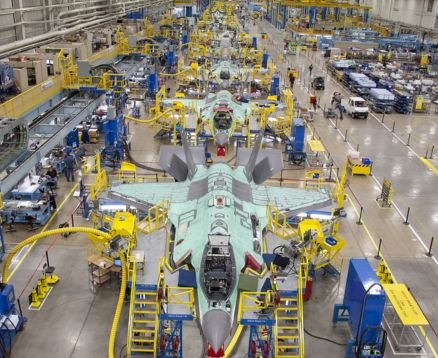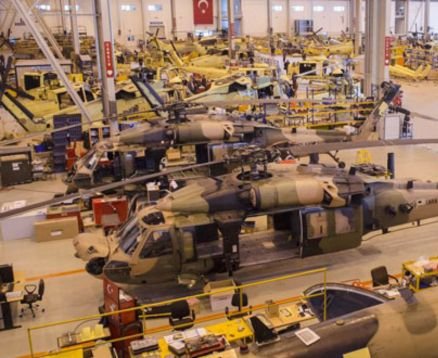United Stainless LLP is a leading Aluminium Sheets Manufacturer in India, offering a comprehensive range of Aluminium Sheets designed for diverse industrial needs. Aluminium Sheets are essential materials in today’s engineering and manufacturing sectors, valued for their light weight, high corrosion resistance, and excellent mechanical strength. These sheets are widely used in industries like aerospace, automotive, marine, and construction due to their adaptability and ease of fabrication.
Understanding Aluminium Sheets
Aluminium Sheets are produced by combining aluminium with elements such as magnesium, silicon, copper, or zinc to enhance specific properties like strength, formability, and corrosion resistance. Each alloy series is designed for targeted performance, making them suitable for varied industrial applications. As a trusted Aluminium Sheets Manufacturer, companies provide a wide range of grades, each offering distinct benefits for diverse engineering needs.
Common Grades and Their Industrial Uses
Aluminium Alloys 6061 (UNS A96061) Sheets
Aluminium Alloys 6061 (UNS A96061) Sheets, known for their balanced strength and corrosion resistance, 6061 alloy is used in aerospace, marine, and automotive structures. It offers excellent weldability and is ideal for load-bearing applications.
Aluminium Alloys 6063 (UNS A96063) Sheets
These Aluminium Alloys 6063 (UNS A96063) Sheets are widely used in architectural applications such as doors, window frames, and curtain walls due to their exceptional surface finish and anodizing quality.
Aluminium Alloys 6082 (UNS A96082) Sheets
Aluminium Alloys 6082 (UNS A96082) Sheets deliver high strength and fatigue resistance, making them ideal for bridges, transport vehicles, and structural applications where durability is critical.
Aluminium Alloys 6083 (UNS A96083) Sheets
Aluminium Alloys 6083 (UNS A96083) Sheets, with superior corrosion resistance, 6083 sheets are suited for marine and offshore applications where exposure to seawater and humidity is constant.
Aluminium Alloys 7050 (DIN 3.4144) Sheets
Aluminium Alloys 7050 (DIN 3.4144) Sheets are a high-strength alloy known for its toughness and resistance to stress corrosion cracking. It is primarily used in aircraft components and high-performance engineering projects.
Aluminium Alloys 7075 (UNS A97075) Sheets
Aluminium Alloys 7075 (UNS A97075) Sheets are among the strongest aluminium grades available, featuring excellent mechanical properties and fatigue strength. They are ideal for aerospace, defense, and structural components that face extreme stress.
Key Advantages of Aluminium Sheets
- Lightweight Strength: Offers excellent strength-to-weight ratio for aerospace and transport applications.
- Corrosion Resistance: Naturally forms a protective oxide layer that enhances longevity.
- High Machinability: Easy to cut, weld, and form into complex shapes.
- Surface Treatments: Can be anodized, painted, or powder-coated for improved aesthetics and durability.
- Eco-Friendly Material: Fully recyclable without loss of quality, supporting sustainable manufacturing.
Applications & Uses of Alumiunium Alloy Sheet
Industrial Applications of Aluminium Sheets
- Aerospace and Aviation:
High-strength alloys such as 7075 and 7050 are vital for aircraft fuselage, wings, and landing gear components. - Automotive Industry:
Alloys like 6061 and 6082 reduce vehicle weight while maintaining structural integrity, improving fuel efficiency, and safety. - Construction and Architecture:
6063 alloy is widely used for windows, roofing, facades, and structural elements that require visual appeal and durability. - Marine and Offshore Engineering:
6083 sheets resist saltwater corrosion, making them perfect for shipbuilding, boats, and marine platforms. - Industrial Fabrication:
6082 and 6061 sheets are commonly used in manufacturing machinery, storage tanks, and heavy-duty equipment due to their strength and workability.
Selecting the Right Aluminium Sheet
Choosing the correct aluminium alloy depends on the specific application, required strength, corrosion environment, and fabrication method. Lightweight projects like decorative panels may use 6063 sheets, while high-stress aerospace components often require 7075 or 7050 alloys. Reliable Aluminium Sheets Suppliers in India help customers select the most suitable grade based on their project’s design and mechanical requirements.
Conclusion
From architectural applications to advanced aerospace engineering, Aluminium Sheets remain indispensable for modern industries. Each grade — from 6061, 6063, 6082, and 6083 to 7050 and 7075 — offers a unique blend of strength, corrosion resistance, and machinability. As a dependable Aluminium Sheets Supplier, companies continue to deliver high-quality materials that drive innovation, sustainability, and efficiency across global markets. With ongoing advancements in alloy technology and surface finishing, aluminium sheets are set to remain the backbone of high-performance industrial design for years to come.
Frequently Asked Questions
Absolutely. Aluminium sheets are fully recyclable without any loss of quality, making them a sustainable choice for industries. Recycling aluminium saves up to 95% of the energy required for primary production. This eco-friendly characteristic, combined with durability and lightweight strength, makes aluminium sheets an ideal material for green manufacturing in automotive, aerospace, construction, and industrial sectors.
Aluminium naturally forms a protective oxide layer, providing corrosion resistance against environmental factors like humidity and saltwater. Grades like 6083 are highly suitable for marine and offshore applications. 6061 and 6063 also exhibit good corrosion resistance, making them ideal for outdoor architectural structures. Additional surface treatments like anodizing, powder coating, and painting further enhance longevity and protect against harsh industrial environments.
Yes, aluminium sheets are highly durable and offer excellent resistance to corrosion, thanks to the natural formation of a protective oxide layer on the surface. This makes them suitable for use in harsh environments, including marine and outdoor architectural applications. Their strength-to-weight ratio also ensures a long service life, minimizing the need for frequent replacement.



